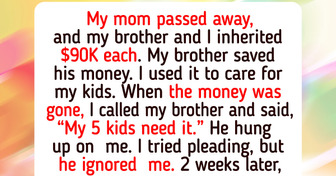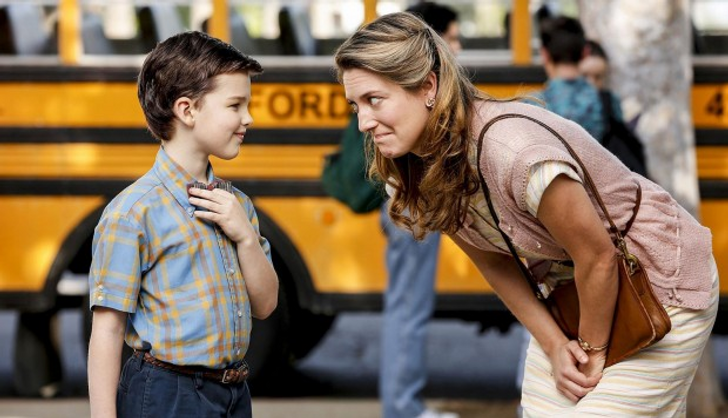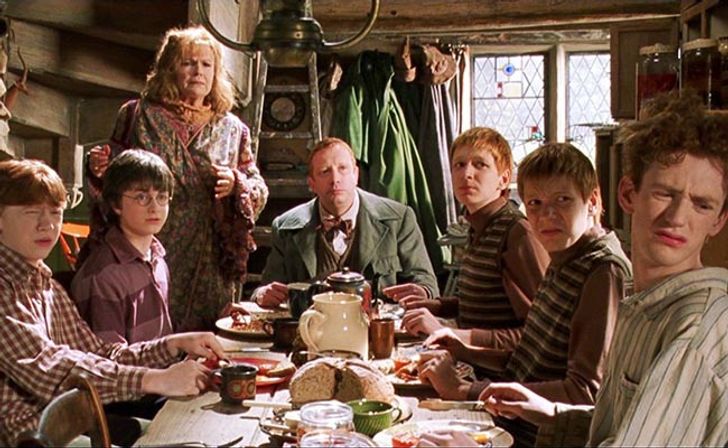Haha now I understand everything! I'm sending this to my mom right now!
The Child Who Angers You Most Is the One Who Looks the Most Like You, According to a Psychologist
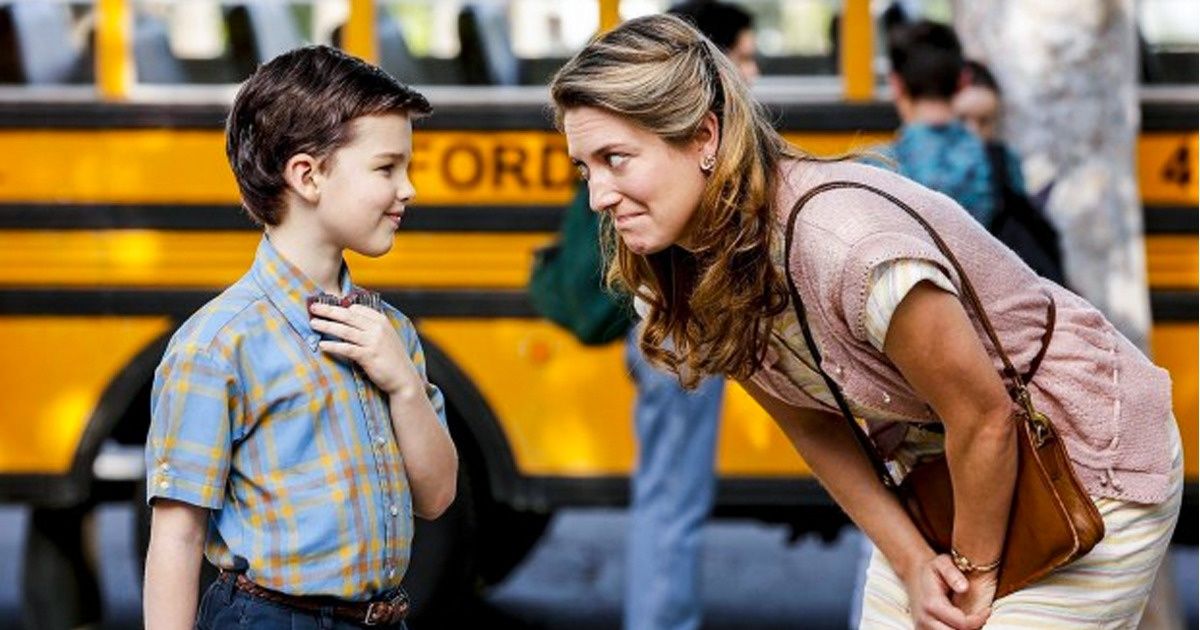
It is normal for families to argue and have differences of opinion between their members. After all, as the saying goes, “Every head is a world.” However, it may be that the person with whom a mother argues the most is one of her children. According to a study, “What bothers you about the other person has to do with you,” parents often don’t accept their children’s attitudes or try to correct them because they see themselves reflected in them, which can lead to fierce conflicts.
Bright Side wants to share this study with you that explains why, sometimes, parents have a more complicated relationship with one of their children in particular.
What is “projection” according to psychology?
According to psychology, projection is a defense mechanism adopted by human beings, which occurs when a person attributes thoughts and attitudes of their own, that they cannot tolerate, to another person. That is, when they project emotions that they cannot accept as their own onto someone else. This usually happens because accepting these would take the subject in question out of their comfort zone, causing them anxiety or stress.
Not taking responsibility for the negative aspects prevents the person from improving and overcoming whatever is causing them discomfort. However, for some, it is easier to move their feelings to an external source and feel anger toward them rather than face reality.
Children imitate their parents’ behavior
According to psychologist Marta Segrelles, many of the attitudes people have are inherited from their parents. From childhood, children observe how their parents act in different situations. Particularly during adolescence, when the personality of each one begins to be established, children begin to adopt the behavior of their parents from the way they speak, to the way they react. Even the mood of the mother or father can influence the emotional development of their children.
It is normal that, throughout life, people look at the past and are not satisfied with some of the decisions they’ve made, or with the way they reacted to a difficult situation and they would like to be able to change it. So when you become a parent and you see your child making the same mistakes as you have, you automatically want to correct them to avoid having them feel the same way when they get older.
How this situation can be resolved
Psychologist Segrelles said that parents should identify their own internal conflicts and resolve them and then try to correct their children. However, she also said that even if you manage to leave the past behind and evolve, you must still accept that children don’t “belong” to mom or dad. They must make decisions and make their own mistakes as a personal learning experience.
- Before you blame something, try to see the problem objectively. Put yourself in each other’s shoes before you pass judgment.
- Evaluate the way you address your child, the tone of your voice, and the words you use.
- If they don’t take your advice in stride, grimace at you, or roll their eyes, remember that you would probably respond in the same way. Try to not get angry about it.
- If the discussion is too loud and you’re exchanging words that might hurt each other’s feelings, it’s better to pause the discussion and leave it for another time.
- It is important to control your emotions. The calmer you are, the more serenity you can convey to the other person. However, if you are upset, your child will reflect that and adopt your attitude.
- Spend quality time with your child. It is important that you establish a healthy bond with good memories.
Learning to accept what is bothering you
- You must accept yourself and recognize that there are things you cannot change. Those aspects that you cannot improve must be left in the past. Focus exclusively on the opportunities that you do have to evolve.
- You cannot go around judging others. You must accept that not all human beings are equal and that you must learn to tolerate differences.
- Internalize what is bothering you about the other person and try to figure out why you are projecting it.
- You can’t just assume. If you are not sure of something, it is better to ask and be certain.
- Take a few minutes out of your day to meditate. This will help you to differentiate the aspects of yourself that you like from those that you wish to improve.
- Be yourself! Show the world all your strengths and weaknesses. In the end, both the good and the bad are the essence of who you are as a human being.
Do you agree with this study? Do you often argue more with one child than another? Have you noticed if the one you argue with most is the one that looks like you? Tell us in the comment section.
Comments
People always say I am not similar to my parents at all, yet when I was a child they would often be angry at me ? I think something went wrong here!
What if you are an only child? ?
Yes I agree with u but she pick up father traits does not wish to listen then caused conflict with her daughter so continues
Related Reads
18 Stories That Prove Simple Kindness Is the Loudest Statement of All

16 Families Whose Everyday Life Is Basically a Sitcom
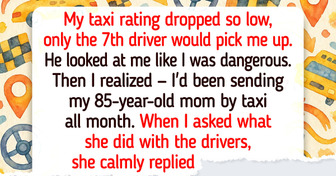
10 Moments That Prove Kindness Still Wins in an Unfair World

14 Stories That Prove Kindness Is the Most Powerful Force on Earth

My Daughter Disrespected My Sacrifices—And I Refused to Let It Slide
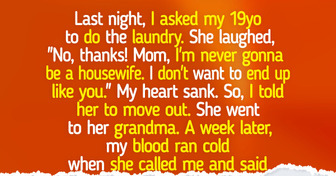
20 Moments When Quiet Kindness Turned Regular Humans Into Heroes

I Funded My Wife’s Luxury Demands—She Made Me Regret Every Penny

15 Real-Life Stories That Prove Kindness Is Part of Being Human

18 Stories That Prove Your Gut Feeling Is Actually a Superpower You Shouldn’t Ignore
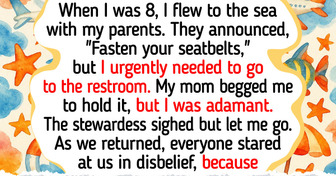
My Mom Forgot About Me Until She Needed My Help—I Turned the Tables on Her
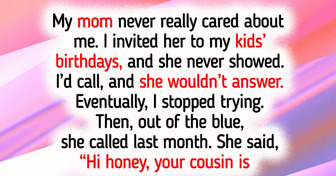
18 People Who Found Out That Small Acts of Kindness Are the Pathway to Happiness
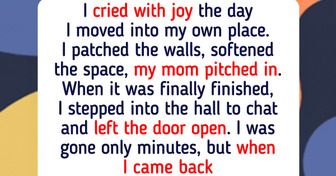
My Brother Has No Kids but Refuses to Share His Inheritance With Mine—I’m Furious
